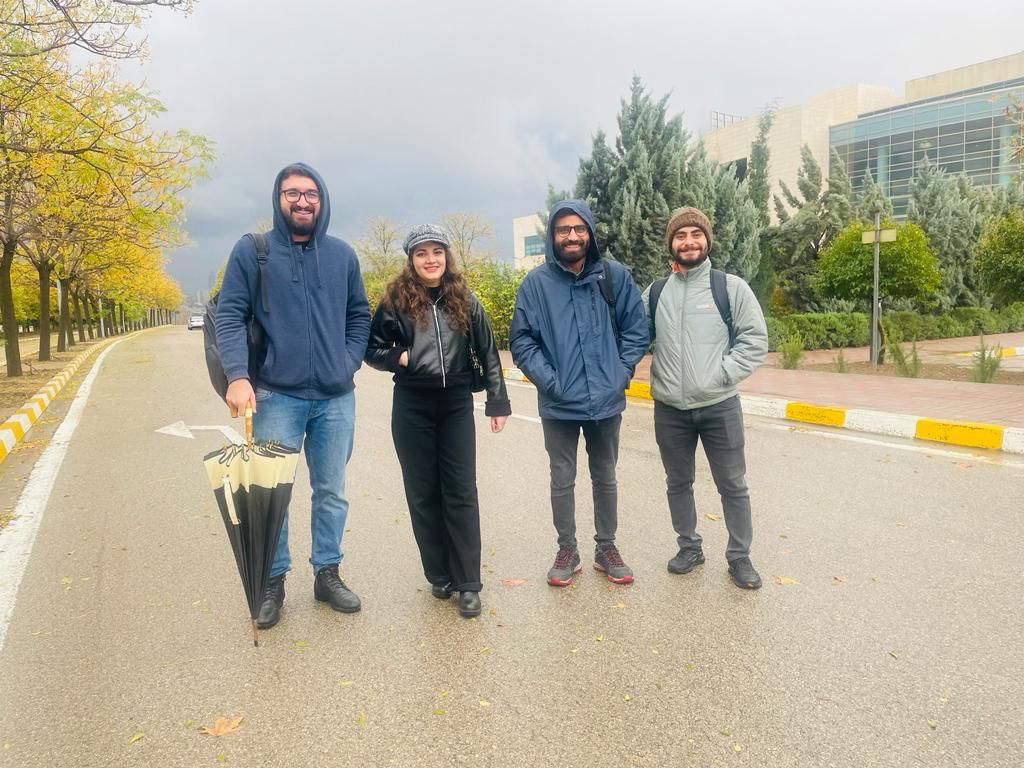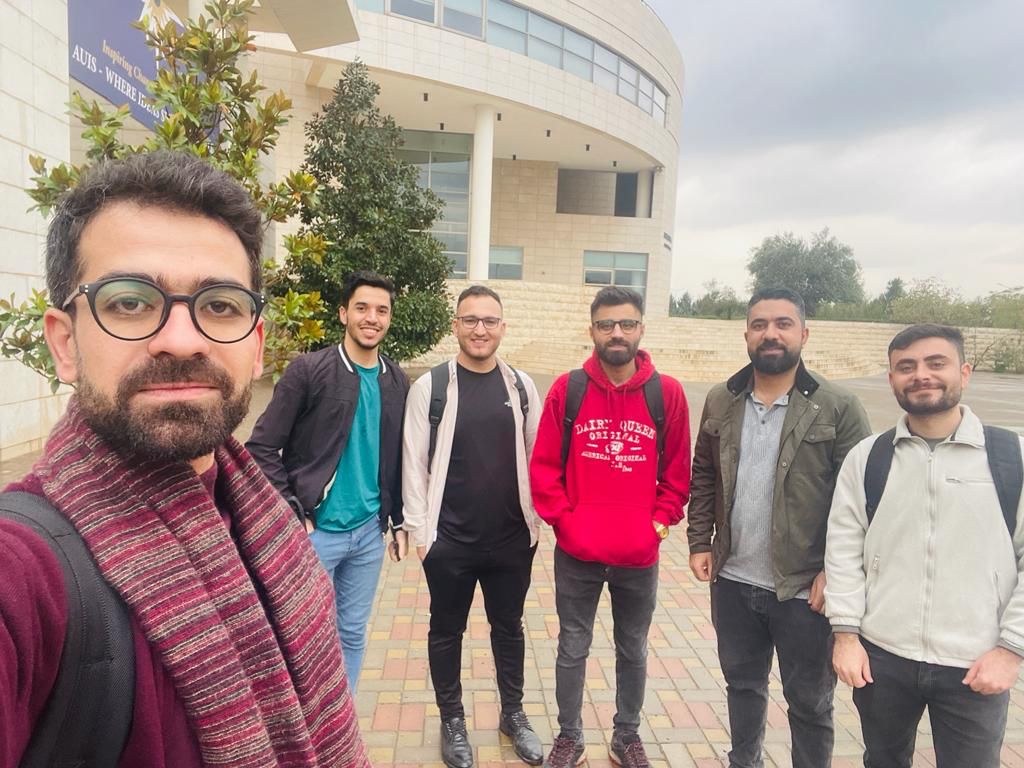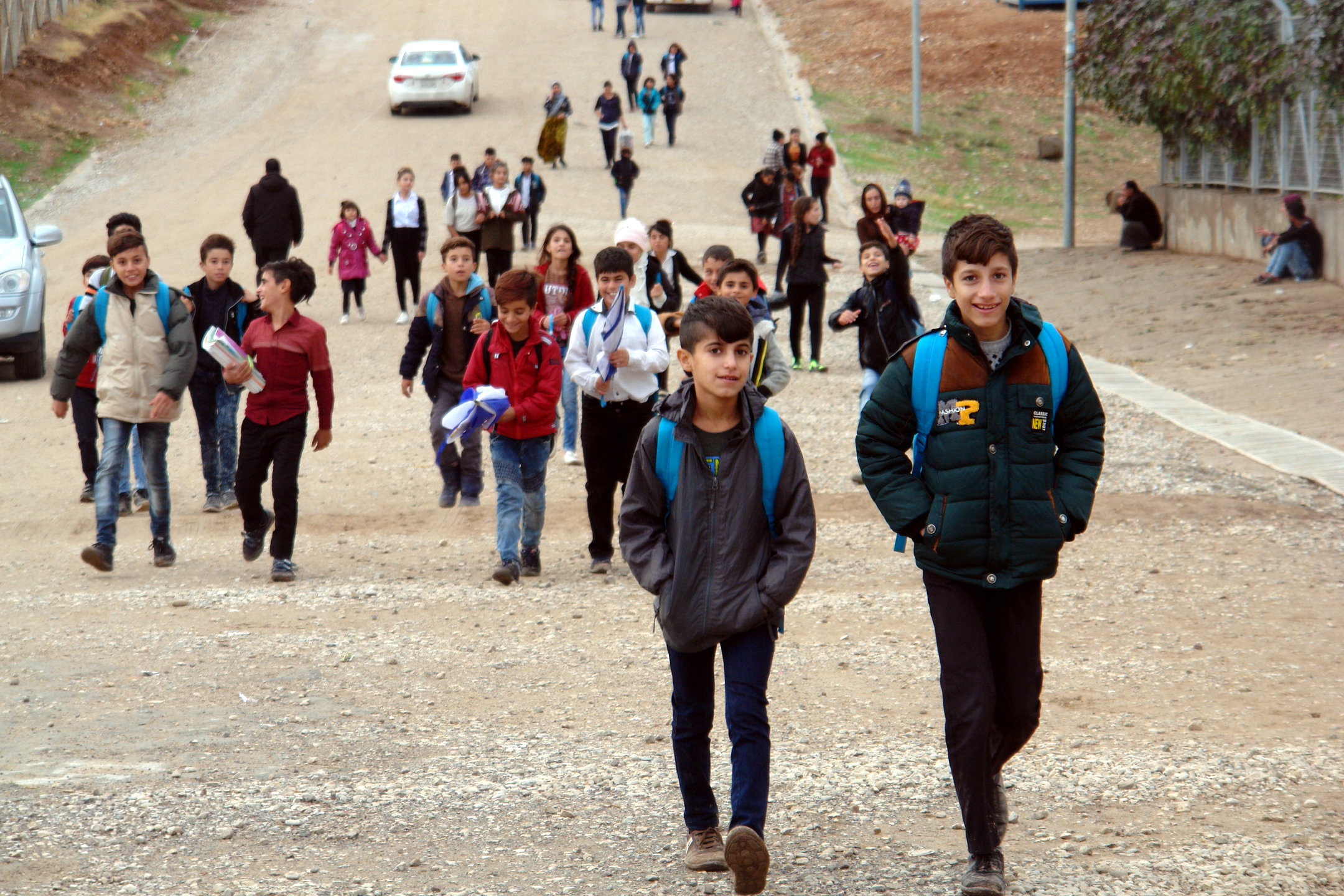“Looking at the clear sky full of stars, I used to wonder: Do they see us the way we see them?” thought Sirwan Saido an Ezidi student at the American University of Iraq, Suliamani (AUIS). Awakening to the sound of birds in Sinjar, the city in north-western Mosul is home for Iraq’s Ezidi community. School Children like Sirwan were going to school with joy and hope that morning, but that morning's promise was short-lived.
On August 3, 2014, the Islamic State of Iraq and Syria (ISIS) launched a devastating offensive on Sinjar and its surrounding regions. The attack had severe consequences, particularly for the Ezidi minority who lived in the area.
Among the more significant but less well-known problems of the aftermath was a loss of access to education. Many families fled to remote refugee camps where students faced the tough decision of whether to study or assist their families in managing the single tent they had for shelter. Overcrowding and the constant noise during the day made studying hard even when classes were available.
Hassan Haji, another Ezidi who eventually went on to study at AUIS said, “During my first year of high school in Khanki camp the situation was dire. The schools were overcrowded because many students wanted to complete their year of study. To solve this problem, I made a decision to buy a chair and carry it with me to each class I attended.” Despite these challenges, many of the students were able to graduate from high school with good grades.

[Ezidi students at AUIS, 2023 from the left Salam Ajaj, Sharstan Suliman, Alaa Essa, and Sirwan Saido]
In 2018 AUIS provided a tuition only scholarship to Ezidi Students with an average grade of 90% and above and fifteen students received this scholarship. Yet with the available opportunity to study at a high rank university, Ezidi Students struggled to pay for their accommodation. This became a problem since students complained about their conditions in the camps and their inability to pay this amount of money. That was when Dr. Bruce Walker the President of AUIS, decided to provide accommodation. "When I first called my father to tell him that I had received a full scholarship and wouldn't have to worry about any expenses, he responded, 'Thank God, I'm so happy, my daughter. And he cried." Said Chenar Khero, current student at AUIS. This opportunity was a great achievement for the Ezidi students.
"I never imagined that I would be teaching university students while I am still a student. This new experience has boosted my self-confidence and motivated me to become more active and engaged in university activities.” Said Zaid Khuduer who is a current Software Engineering student. AUIS has truly been a transformative journey for Ezidi students. Initially, they found university’s environment and roles to be unfamiliar, but having classmates and professors from various backgrounds provided them with invaluable experiences, enabling them to adapt and thrive in this new academic landscape. However, they embraced new cultures, languages, and ideas beside quality education which opened doors to opportunities once out of reach. Many of these students worked as tutors at the university, boosting their finances and expanding their network and exchanging Ideas.
Ezidi students at AUIS encountered a range of challenges, including cultural adjustment to the diverse university environment and language barriers for those who do not speak very well English. Moreover, financial constraints, despite scholarships, along with feelings of cultural isolation and homesickness, were particularly challenging for students at the beginning.

However, these challenges didn't stop Ezidi students from learning new skills like critical thinking, logic, and mastering new languages, while excelling at AUIS, where they achieved top grades and received awards in their departments. “We empathize with the challenges faced by Ezidi students, and we are delighted to have them in our classes. They actively participate, dedicated to their studies, and respectfully following classroom policies. They are the ones who always get the highest grades in my class”. Said Dr. Aram Hassan, an engineering instructor who most of Ezidi students took class with.
After their graduation, many students went back to Sinjar and transformed the experience and skills they had learned at AUIS to the Ezidi community. Gazala, a recent journalist who graduated in 2021 from AUIS, returned to Sinjar and joined the local Youth Bridge Organization, leveraging the experience she gained to aid her community through the education and awareness courses on electronic provocation. Similarly, Neshteman, an engineering graduate from AUIS, returned to Sinjar and has been actively collaborating with Nadia's Initiative, focusing on the reconstruction of schools and health centers.
Even though this generation was successful in the scholarship, the scholarship round stopped when it should have continued. There are many Ezidi students who have high grades and are interested in studying at AUIS, but they are not able to do so, due to their financial circumstances. We as Ezidi students here at AUIS raised this issue to the vice president of the AUIS Board Dr. Kameran and he stated “We as AUIS have helped Ezidi students as much as we can, but this year, unfortunately, we do not have any funds and opportunities to give any exception to Ezidi students”. Despite the hardships in the economic situation, students believe that AUIS can allocate one or two seats from its scholarships to the Ezidi students whose grades are 90 or above every year.
Alaa Essa, a current student at AUIS has been transforming his experience and skills to his Ezidi community even before graduating. Alaa, who is now working as a teacher with Sinjar Academy, reflects on how his education at AUIS has enabled him to make a significant impact on the lives of students in Sinjar. Through his experience at AUIS, he has been able to introduce a range of crucial subjects and skills that were not covered in the standard curriculum or by other teachers in Sinjar. Alaa said “I taught them logic, critical thinking, the impact of climate change, and other important topics and skills. The importance of going back to our community, and sharing our knowledge, skills, and a commitment to positive change in education in our community because these students are not only building a brighter future for themselves but also for the Ezidi community as a whole”.
Education can help a nation prosper and survive by empowering its people with knowledge and skills. In the context of the Ezidi community in Iraq, education played a crucial role in rebuilding their lives after a devastating conflict. By providing access to education and nurturing talents, communities can ensure their long-term growth and resilience, ultimately contributing to the survival and prosperity of a nation.





